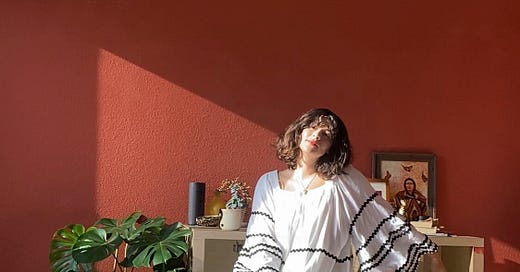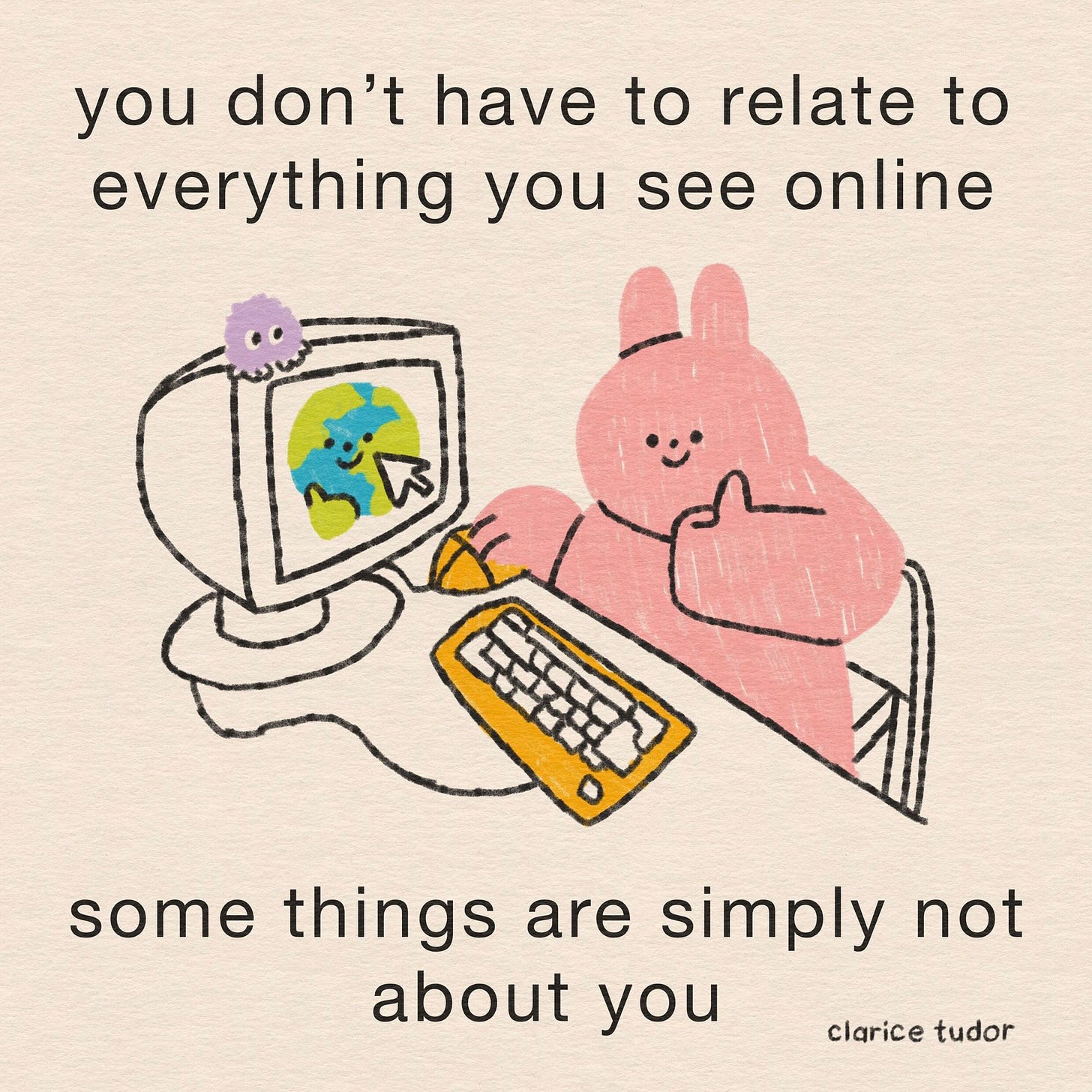'Anti-Aging' is Anti-Living
Excerpts from my interview with freelance beauty journalist, Jessica DeFino
Last Friday, I did an Instagram Live interview with
. Jessica is a freelance journalist for The New York Times, Vogue, WWD, Allure, and more. She also writes a fabulous newsletter called, here on Substack. More about her newsletter:This newsletter is a place for my most “unpublishable” pitches: the beauty-critical content that publications can’t, won’t, or don’t cover — whether that’s to appease advertisers, preserve brand relationships, or cling to the conventional wisdom, outdated ideals, and marketing myths that keep consumers consuming. Trust me, it all influences what information makes it to the mainstream.
Below, I share some excerpts from our hour-long conversation. If you want to watch the entire thing, it’s here.
What is, in your opinion, your most “controversial” take?
One of the things I got the most hate for was when I wrote an article about hyaluronic acid not being a good skincare ingredient and talking about some of the problems it can cause for your skin, and people were like hyaluronic acid evangelists as if I sacrilegiously denounced them. We’re talking about something someone put together in a lab, why are you so tied up with this ingredient? So, there’s all sorts of things. People get really upset about things as small as an ingredient or as large as the concept of body autonomy.
So, I’ve been personally really exhausted by the discourse on cosmetic procedures as “feminist” or “not feminist.” I feel like asking the question, “Are cosmetic procedures feminist?” is the wrong question. And it makes me think about people’s very minimal and basic definition of feminism of it being about “choice.” And I will say, I am not even anti-cosmetic procedures, but why do you think this conversation keeps coming up? What are your thoughts?
I think we have to start with a few basic definitions, and one is that cosmetic surgery and all these aesthetic interventions—what they’re doing I perpetuating a standard of beauty; they’re helping you adhere to a standard of beauty, and that standard of beauty is not actually beauty, but it’s access to power. So, we’re talking actually about power hierarchy here. When you adhere to the beauty standard, you are helping to secure your place of power in the hierarchy. So, I think it’s really compelling to want to justify any sort of choice-based cosmetic intervention as “Feminist,” because it lets us feel good about these individualistic pushes for power that we are undertaking. It helps us pretend that our best interest is actually the collective best interest. When really what we’re doing is propping up these systems of oppression and participating in a power hierarchy. We want to feel good about that, because you want to have your cake and eat it, too. You want to be accepted by society under this really strict definition of what beauty is AND you also want to feel like you’re helping everybody by it being feminist. Every action you take in your life does not have to be some random monument to feminism. We’re going to have to participate in these shitty systems just to live sometimes. But yes, if you consider that question and then define feminism, which is collective liberation—gender equality as collective liberation—then you cannot categorize individual cosmetic interventions as feminist. It doesn’t mean nobody can ever do them; it just means don’t call it feminism. I think there’s a lot of concern in calling it “feminist” in that one, it dilutes the meaning of feminism; it undermines the power of actual feminist action, and it takes the place for a lot of people of real political action. Because then we feel like we’re participating in a collectively liberating political movement by getting lip fillers.
What are some ways people can begin to divest from "anti-aging"?
I think it starts with reframing your thoughts about it before necessarily remodeling your behaviors. I do think a lot of our behaviors and product use and cosmetic interventions are really coping mechanisms for living under beauty culture where you are constantly told you are not enough, so you have to change your body. It’s not necessarily healthy to remove all of your coping mechanisms without a plan. So, you don’t have to focus on behavior first. For me, and what I’ve heard from people who’ve gotten the most out of my work, the most effective thing is to reframe the term “anti-aging” as living. If you replace the word “aging” with “living” in any marketing materials sent your way, it really diminishes the glow and appeal. It helps you understand what you’re participating in. I think also just to realize that anti-aging is a physically impossible goal. It doesn’t exist. It’s the ultimate capitalist grift because there’s no point at which you’ve fully anti-aged. When you commit [to the grift] you are now a consumer for life because you can never stop. Because then you get used to how your face looks with Botox or fillers or no wrinkles, and it is even more of a psychological mindfuck when you start to divest from it…. We’re trying to optimize ourselves as if we are pieces of machinery and not sentient human beings.
The other thing that can help us divest from it is just learning the science of aging and what we consider to be “signs” of aging. Really what beauty culture has messaged to us as signs of aging is more often signs of exposure. It’s not biological aging. Eighty-five percent of what we think of as aging is actually exposure: exposure to the sun, exposure to environmental pollutants, stress, certain elements of our diet. All of these internal and external exposures create surface-level manifestations and many of these are just natural aging. It’s just what happens! I always say, the beauty industry loves to throw this thing of like “after age 25, your collagen starts to diminish” as if you have to maintain the collagen stores of a 25-year-old your whole like. That’s absurd to me. Your collagen diminishing is no more of a problem than going through menopause. Your body changes.
So once you understand the science of what some of these things actually are and what they are reactions to and realizing that none of it is “aging” and the industry is just telling you it’s aging because it’s profitable and a really great way to make you feel like shit about your body then you’re just like, “Oh, this is way less appealing.”
Subscribe to Jessica’s newsletter below!
🎉 Things of the Week
When Gig Workers Inadvertently Become Care Workers - s.e. smith
This song for when I’m feeling angry (which is often these days)
Let’s Deinfluence Wellness, Pt. 1 - Sam Slupski
This art by Clarice Tudor
✨A few things✨
The Guerrilla Feminist is reader-supported! Thank you to the folks who pay monthly to support my work. If you want to be added to a paid plan, go here.
Want my consulting on Digital Violence Prevention Programming? Go here.
Forward this email to a friend you think would enjoy it or take a screenshot and share it on social media!








I’ve been following your presence on instagram for a while now, and I’m so happy to have found you on Substack! I appreciate the perspective that your provide in your IG posts and now here. Thank you for sharing your point of view!
Loved this! So many excellent observations. This part in particular really resonated: “It helps us pretend that our best interest is actually the collective best interest. When really what we’re doing is propping up these systems of oppression and participating in a power hierarchy.” Thanks to you and Jessica for a great conversation!